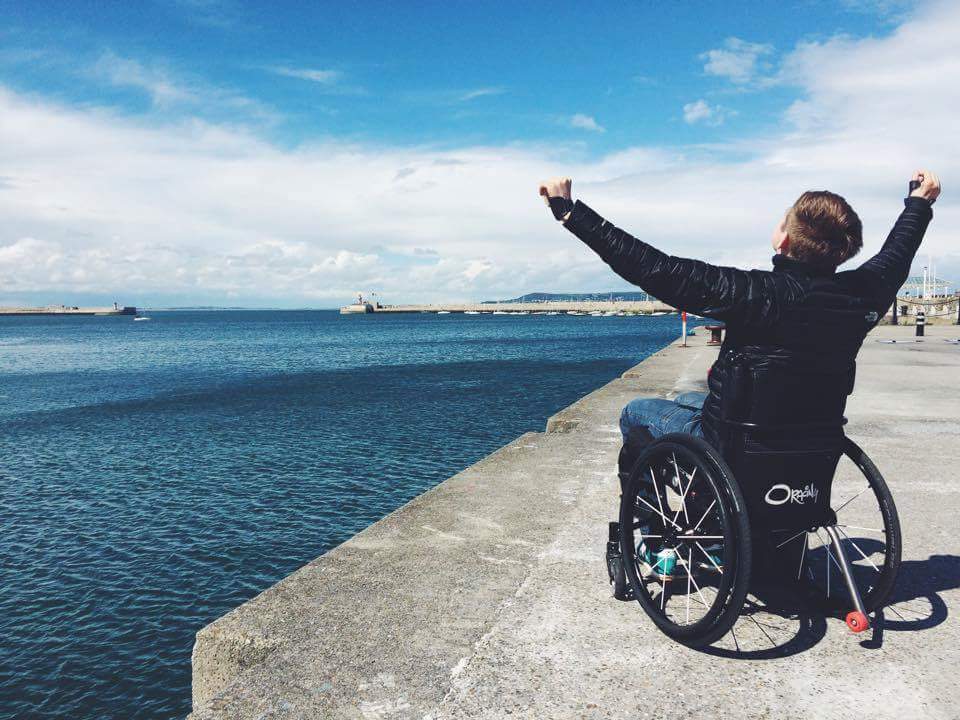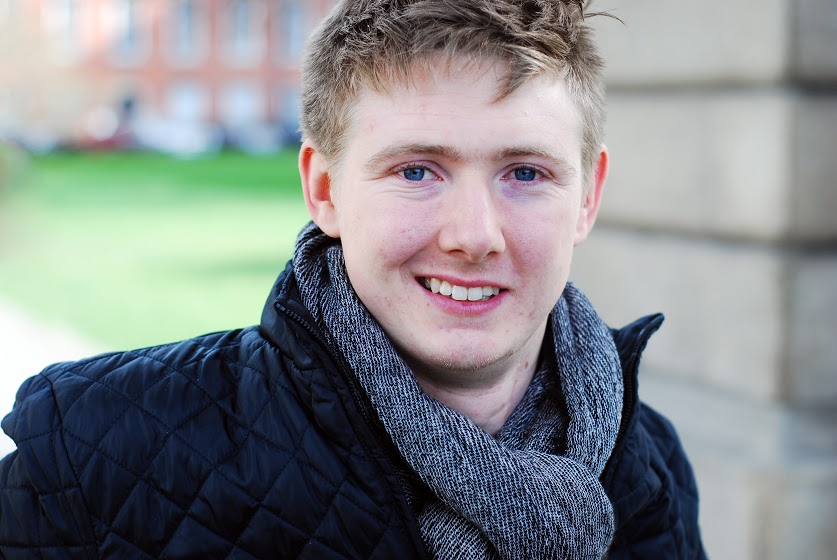It often seems like a right of passage for many Irish young people to spend a summer in America. This dream of travelling around the States was one shared by Trinity pharmacy student, Jack Kavanagh. However, in 2012, Jack was seriously injured in a windsurfing accident, leaving him paralysed and in a wheelchair.
The perception is that a physical disability has the very real potential to be life-destroying, but Jack doesn’t appear to have ever given up, nor let it dampen his spirits. His self-produced documentary, “Breaking Boundaries”, which premiered last night on 3e, proves this as it follows Jack and a group of friends as they travel down the west coast of America.
The prospect of such a trip can be daunting. For many, travelling can be both a emotionally and physically tiring task. However, Jack says he was “stubborn”. Speaking to The University Times, Jack explains that he and his friends had made the promise, before his accident, to go on this trip, before college ended, so that they would have “a story we could tell our grandkids”. Not letting his disability come between him and the life he wants to live, Jack admits: “We just sort of said, ‘feck it, let’s do it’, and we committed.”
The documentary is very natural “fly-on-the-wall” footage of a group of lads travelling around America – albeit one complete with “wow” moments such as going backstage at U2, and meeting Julia Roberts and Cameron Diaz
Jack has taken on something of a public role after this accident, regularly engaging with Irish media and taking part in public speaking engagements like his TEDx talk on overcoming adversity. He’s been vocal, in the midst of the “whirlwind” of planning such a huge trip, about its practical difficulties, acknowledging the challenges that the trip would create. He explains his conclusion, however, that “once I realised this trip, and successfully completed it, it would be me proving to myself that I didn’t have to set any limitations on the lifestyle that I live, after the injury”.
This was where the idea of a documentary following the group’s adventure started to appear. It was after he was finishing this speech, that “someone came up” to him, and said: “God, it would be amazing thing to document.” He laughs, acknowledging the influence that one moment had on him: “That sort of planted a seed in my head, I don’t really think that person understood what they started.” Immediately, the group began to look for funding, using crowdfunding websites as well as pitching to private investors, and soon had to enough funds to create the documentary.

Authenticity in the documentary was one of the most important elements to Jack and, with one of his friends being a filmographer, the resulting documentary is very natural “fly-on-the-wall” footage of a group of lads travelling around America – albeit one complete with “wow” moments such as skydiving, white water rafting, going backstage at U2, and meeting Julia Roberts and Cameron Diaz. While these are unique aspects to their trip, Jack explains that the documentary is a “completely human story”: “There’s so many beautiful lessons we had along the way, that can apply to anybody facing a challenge or an obstacle in any part of their life.”
This is the message at the heart of the documentary that Jack wishes to convey: “The reality is everybody has their shit, it’s just boxed in different ways. That’s a very levelling thing for people when they realise that, because you realise that you’re not alone in the struggles you’re facing. It’s just that other people’s struggles are shaped differently.”
Speaking about the optimism that the documentary portrays, Jack mentions a quote from his father from the documentary, where he says: “When we’re challenged or when we face adversity, we find the strength we didn’t know we had.” He goes on to add his personal philosophy to this quote, musing that if “people were to throw themselves in at the deep end, and put an idea out to the world that they believe in more often, they would be shocked”.
“All of us have put so much of ourselves into this, and we’re just so happy to be sharing this with so many people, it’s a story we really believe in”
Certainly neither Jack nor any of his friends expected a documentary produced “from scratch” by students to be so successful. “It’s been an incredibly intense couple of months,” he explains, “all of us have put so much of ourselves into this, and we’re just so happy to be sharing this with so many people, it’s a story we really believe in”.
Commenting on his time in Trinity, Jack praises the college as being “so helpful in facilitating me in every way possible”. He describes the work done by Trinity as “colossal”, and that the college has vastly improved itself in terms of accessibility over the last number of years: “The work that the disability services do across the board, and in particular with physical disability is so important.”
This documentary aims to provide viewers with an eye-opening experience, one that, as the title states, will show how one can break the boundaries that they perceive to be holding them back. The immediate reaction of many people to those with physical disabilities would be to pity and to treat them as less than able-bodied people, but Jack maintains that he can function “as well as everybody else”, and he illustrates this in the documentary. “Nothing is insurmountable,” he emphasises, “particularly with a physical disability. There are practical solutions to a lot of things that people may perceive as problems, and they are very simple to implement and to get around. Hopefully it has an impact on people’s perception.”







